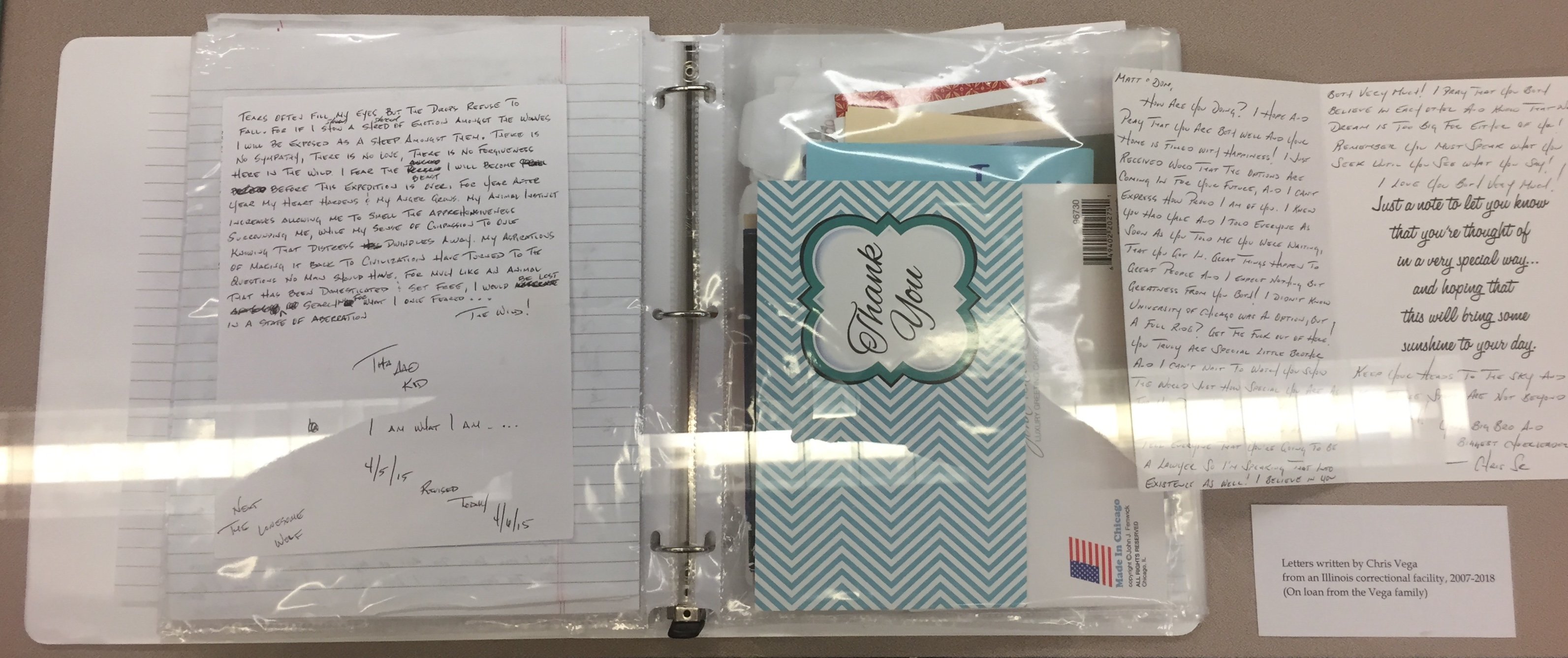We live in the era of mass incarceration. The United States has the largest number of incarcerated people of any nation in the world, almost twice as many as the next highest population in China. This number has risen exponentially over the past decades. In 1980, the total prison population was 329,000 people; in 2017, it was well over 2 million. American communities are are not equally affected by mass incarceration. The U.S. imprisons more of its racial and ethnic minorities than any other country; it imprisons more of its black population than South Africa during apartheid.
Statistics aside, what does it mean to a human being to be imprisoned? This exhibit draws together letters written by incarcerated people, across time and space. The centerpiece and inspiration for the exhibit is the collected letters of Chris Vega to his brother. Mr. Vega has been imprisoned by the Illinois Department of Corrections almost continuously since 2007. Juxtaposed with Mr. Vega’s letters and poems are published works written by or for incarcerated people, from the collection at the University of Chicago Library.
Personal details about the authors, in particular the reason for conviction, are purposefully absent. The goal of the exhibit is to show a cross-section of the human experience and to set aside judgment for empathy.
